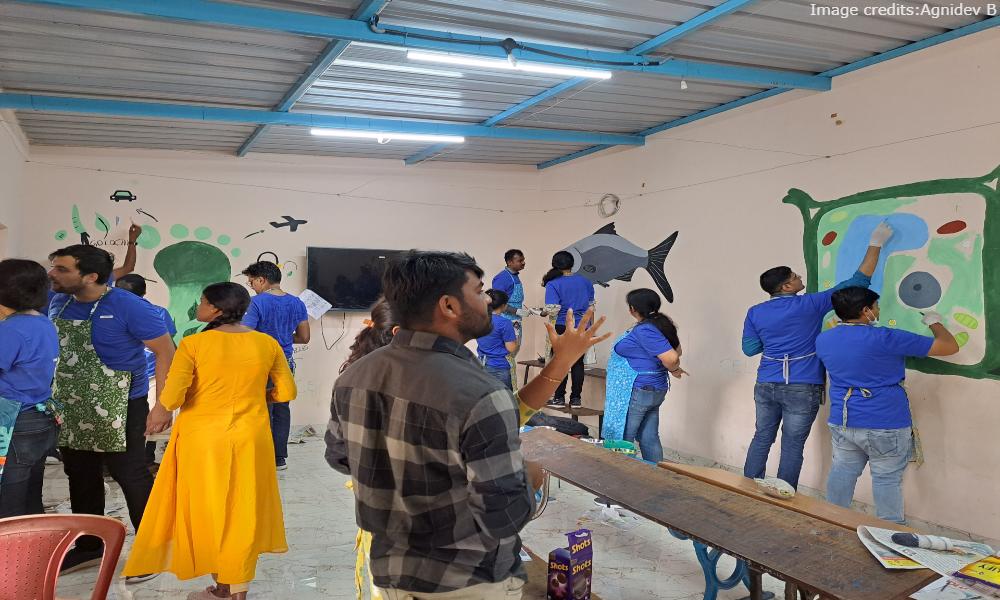Non-Profit Organizations in Bengaluru are underwhelmed about the new medium of raising funds for their social activities through the social stock exchange.
Most Non-Profit Organizations (NPOs) in Bengaluru show little enthusiasm for the Social Stock Exchange (SSE) about to be setup by the Securities Exchange Board of India (SEBI). The NPOs say they are unaware of the initiative and that the process of registration is unknown.
NPOs in Bengaluru such as Arocha, Sochara, Sparsha Trust, Sakhya, and U&I said that they were unaware of the concept of an SSE, and said that they have no plans currently to raise funds through the platform. According to a few organizations, the process of registering is unclear to them. A spokesperson from Sochara said, “We have heard about this platform only recently, but will not register now as we are not sure of the legal and other criteria to be fulfilled.”
Skepticism
Organizations like Sampark, Prerana, and Aahwahan were aware but are not planning to list themselves and raise funds through the platform.
Braja Kishore, Vice President, Aahwahan Foundation, an organization aimed at promoting welfare of the economically backward sections through generating employment, said, “About 95 percent of the NPOs I know of are not aware of the recently approved social stock exchange. It is a very good initiative in the long run but I am very skeptical about its takeoff in the starting stages.” He said that the process is not easy for all NGOs as there is still a lack of understanding with regard to the registration and documentation to get listed in the exchange. He also added that Aahwahan is not looking to register itself yet, but may in the future when its platform gets running.
“It is a very good initiative in the long
run but I am very skeptical about its
takeoff in the starting stages.”
Braja Kishore, Vice President, Aahwahan Foundation
Ram Sastry, from Prerana, an organization focusing on girls’ education and empowerment, said, “I personally know about SSE, but at an organizational level we have had no discussions as it is in very early stages.” He added that they may join by considering the impact and the usefulness of the platform to raise funds.
Very few NPOs like Hasiru Dala, an organization aimed at improving living conditions for the city’s unorganized workers, and Make a Difference (MAD) said that they are aware and are exploring the possibilities of raising funds through the SSE. Nalini Shekar, the founder of the Harisu Dala said, “We are already taking the necessary steps for getting registered, but sure about the other NPOs in the city. This is a good initiative and opens the doors to raise funds on a large scale.”
Sumetha Pandit, from Make a Difference said, “We are currently registered on the National Corporate Social Responsibility (CSR) exchange portal and are yet to register on the SSE platform as we are still in the process of exploring it, especially once it becomes fully operational. Therefore, we haven’t finalized any funding amount to be raised from the SSE platform as of now.”
How it works
The social stock exchange is a platform where the Non-Profit Organization, and For-Profit social enterprises will be given a platform to raise revenue from the public. This concept was first introduced by the Finance Minister Nirmala Sitharaman in the 2019-2020 budget speech. The Securities Exchanges Board of India (SEBI), in December, gave the nod to the Bombay Stock Exchange (BSE) and the National Stock Exchange (NSE) to set up the SSE as a separate segment on the trading platform. The NPOs have to be eligible within the criteria set up by SEBI to get listed.
The SSE will run on the basis of Zero Coupon Zero Principal Bonds (ZCZP), where an NPO will issue ZCZP for specific social development projects. It differs from a conventional bond on the basis of the probability of being defaulted, as the NPO may not deliver the social impact that it promised to create. A ZCZP bond shall not need to pay interest on the money invested and the return of the principal amount is not guaranteed.
Fundraising
Small NPOs that are not working on mainstream themes such as education and women’s initiative have always found it difficult to raise funds for their cause. Suresh, who works at Fundraising Made Easy, an organization that trains and helps NPOs to raise funds through different mediums, said that raising funds by big NPOs for larger causes attracts better funding than for the smaller ones. He added, “Digitalizing payments has made it easier for small organizations to attract funding on a small scale, but it might not be enough to bring a change.”
Funding for the NPOs took a hit during the Covid-19 pandemic, as most of the funds went into Covid relief and PM cares fund. During the same time, the Foreign Contribution Regulation Amendment bill imposed restrictions on the transfer of funds to small organizations. The data from the India Philanthropy report 2021 show that 47 percent and 27 percent of the total philanthropists’ funding went towards education and healthcare respectively. Only about 4 percent went to rural and other development.
Nascent
On a global scale, the evolution of SSEs is in a very nascent stage, with only three of the seven SSEs established across the world are active. The three active exchanges are in Canada, Singapore, and Jamaica. A report shows that with the sheer number of NPOs in India, only a small number will be able to list because of the eligibility criteria and the ensuing process. A study by the Impact Platform in 2018 reviewing impact platforms including the SSEs in Canada, the United Kingdom, South Africa, and Brazil show that 75 percent of the platforms were unsuccessful in generating income sufficient to fund their operational costs.
One of the reasons that there is a low awareness among many NPOs can be the lack of a financial management team. Suresh said, “Small NPOs who do not have a proper team for raising funds and managing finance will not be aware of this initiative.” He added that in addition to having a financial team, there should be some awareness campaigns by the appropriate authorities to educate small NPOs on the benefits of a SSE.
Shri Ashishkumar Chauhan, Managing Director and Chief Executive Officer, NSE, said in a press release, “We believe this platform will immensely benefit the social enterprises contributing to the Sustainable Development Goals.”
A spokesperson for the regional branch of NSE in Bengaluru said that there is no awareness activity with regard to SSE to the public, and will plan about it in the future.




